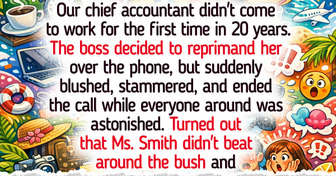You have deflated your rage temporarily through your resignation causing a slight slow down to the system but, at the end, you will be the main looser. Wrong decision...
HR Refused My Promised Raise—So I Pulled a Move No One Saw Coming
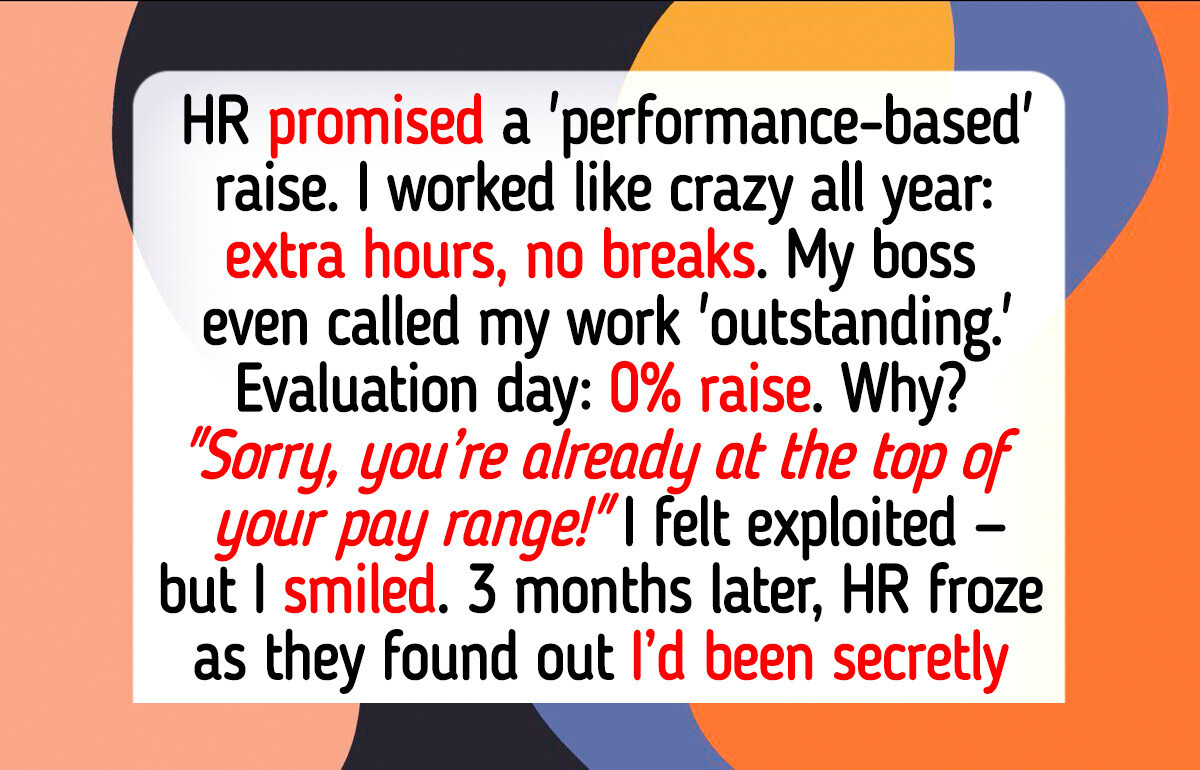
Workplace stories often remind us how complicated fairness, effort, and recognition can be. Many people push themselves hard, hoping their dedication will finally pay off, only to face unexpected obstacles. Recently, a reader reached out to Bright Side with a personal experience that reflects exactly this struggle.
Here’s Mark’s letter:
Hi Bright Side,
HR promised me a “performance-based” raise. So I pushed myself to the edge for an entire year—extra hours, skipped lunches, late nights, no breaks. My boss even called my work “outstanding.” I thought I was finally going to be recognized.
Evaluation day came.
Raise: 0%.
The reason?
“Sorry, you’re already at the top of your pay range.”
That was the moment it hit me: the promise had just been bait to keep me grinding. I felt exploited. But I smiled, nodded politely... and quietly began planning my own kind of payback.
Three months later, HR froze when they found out I’d been secretly leaving work an hour and a half early every single day for the last quarter. My salary stayed the same, but I cut my actual working time by almost 20%.
The wildest part?
No one noticed because my workload was always done early, my output was higher than everyone else’s, and half the team relied on me so heavily that they assumed I was “somewhere in a meeting” whenever they didn’t see me. The department was running smoothly, so my absence didn’t create any disruptions at all.
Meanwhile, in all those liberated hours, I was interviewing. And not casually—strategically. Within three months, I secured a position with a significantly higher salary and a healthier environment.
Now HR has finally noticed my early departures because my boss suddenly needed me for a last-minute project, couldn’t find me, and pulled my time-log records to check where I’d been. That’s when they realized the pattern and escalated it.
But here’s the twist:
While they’re gearing up for a confrontation, my resignation letter is already printed, signed, and waiting on their desk.
Now that everything is set in motion, I keep wondering: Did I do the right thing, or did I let the frustration push me too far? A part of me feels justified... but another part worries I might have crossed a line. I’d genuinely appreciate your perspective—was this a fair response to an unfair system, or should I have handled it differently?
—Mark
Thank you, Mark, for sending us your story. Here are 4 pieces of advice that may help you look at the situation from different angles.
Reflect on Boundaries, Not Blame.
Your reaction came from a place of exhaustion and feeling misled, which would push almost anyone toward a breaking point. Instead of judging yourself harshly, think about why the situation got so out of control in the first place. You went far beyond reasonable limits because you trusted a promise that wasn’t honored.
Now you have the chance to set better work boundaries in your new job, so you never reach this level of burnout again. Treat the experience as a lesson in self-protection, not self-punishment.
Understand the System You Were Up Against.
Many companies use phrases like “performance-based raise” loosely, without considering the real impact on their employees. You weren’t dealing with a personal enemy—you were dealing with a broken system that rewarded loyalty with limits instead of growth.
Your quiet early departures were a response to that imbalance, not an attack. The fact that the department still ran smoothly shows how much they relied on you, even without acknowledging it. Recognizing this can help you release guilt and understand your reaction in context.
Close the Chapter With Confidence.

Well I agree with your position what you did was inappropriate and violated company policy and you could be terminated for that before they acknowledge your letter of resignation and they could easily adapt paperwork to predate your letter and that might follow you around depending on your industry. Essentially you established the pattern of job abandonment regardless of what you thought was right or wrong you did wrong it doesn't matter what the company did you broke the rules and you potentially could have suffer serious issues as a result. Depending on your state they could demand back pay for all those missed hours. They could discipline you they could make life hell they could take you to court because essentially you took over three month period roughly 115 hours of pay which is almost 1.5 paychecks. Depending on your pay you could face some serious legal issues and fines and penalties because no matter what they did nothing justifies you stealing company time and falsification of records.
You already secured a better job, which shows your skills and value were never the issue. At this point, it’s healthier to focus on the future rather than replaying the unfair treatment you received. HR may confront you, but you hold the advantage because your resignation is already prepared.
Keep the conversation calm and professional, so you leave on a strong, dignified note. Closing the door cleanly will help you walk into your next role without lingering frustration.
Choose the Kind of Professional You Want to Be.
While your strategy was clever and understandable, now is a good time to think about what kind of workplace identity you want going forward. Acting from frustration is human, but acting from purpose is stronger in the long run.
In your new job, consider using transparency and firm communication instead of silent protests when something feels unfair. These choices build long-term confidence and respect, both from others and from yourself. Let this experience shape a better version of your professional self rather than a more defensive one.
Anyone can snap when expectations keep growing and personal limits are ignored.
I Refused to Cover for a ‘New Mom’ Coworker—HR Got Involved
Comments
Their bad. Move on bc they obviously don't appreciate your hard work. Every employee should be told ahead of time what the pay scale is for their position and how, if any, you can advance
Terri. Corporations are only a collection of people. Not all people are only for themselves, although often we are are. Not honoring an increase and losing a star performer is not in the company interest. HR is often not strategic and prioritizes policy. Did they know of the promised increase and deliberately ignore it? Was a bonus a solution? Should the ranges be adjusted? By not voicing concerns Mark missed a leadership opportunity. HR might not know they screwed up. The boss also may not know, or did not want to oppose HR because he was having his own challenges with some other situation. The boss might have shifted priorities for Mark. They lost a good performer and Mark lost an opportunity to advocate for himself. Then if the company did not fix it, Mark would not be asking if he did the right thing.
Well, they lied to you to get you to work your butt off for nothing. Once they found out what you were doing they were going to fire you anyway, so your Bridges with them are burned.
The bottom line is the employer lied, and if they put it in writing, that's evidence that can be taken to your labor board!! They DON'T like employers screwing over employees, ESPECIALLY if a bonus had been promised but not delivered! The employer would then have to answer some VERY hard questions, and heads will have to roll (supervisor and/or manager)! But good job knowing your worth by getting hired elsewhere with better pay!
You absolutely did the right thing!
Related Reads
I Refuse to Train My New Boss—I’m Done Being a Doormat
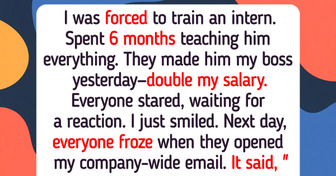
16 Real-Life Moments That Prove Kindness Is a Quiet Strength
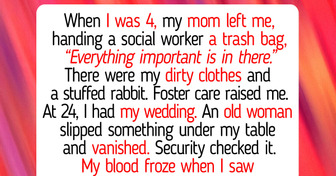
16 Raw Stories That Prove Kindness Can Make Spirits Shine
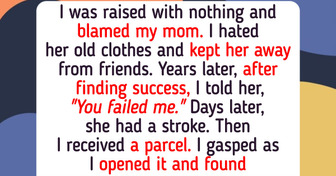
My Boss Publicly Shamed My Small Charity Donation—So I Revealed Exactly How Much He Gave

12 Stories That Capture the Sweet and Sour Memories of Blended Families

15 Stories That Show Quiet Kindness Is the Strength the World Needs Most

15 Moments That Show Quiet Kindness Is What Really Holds the World Together
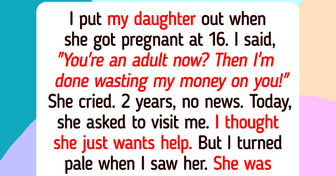
I Forbade My Stepdaughter From Eating Meat — My House, My Rules

I Was Fired After Training My Replacement, Now My Boss Is Begging Me to Come Back
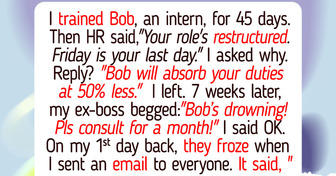
17 Moments That Remind Us Kindness Is a Choice, Not a Mood

I Refused to Pay for Our Valentine’s Dinner—Then I Learned the Heartbreaking Truth

13 Work Stories That Prove Real Life Writes Better Comedy Than Any Script
